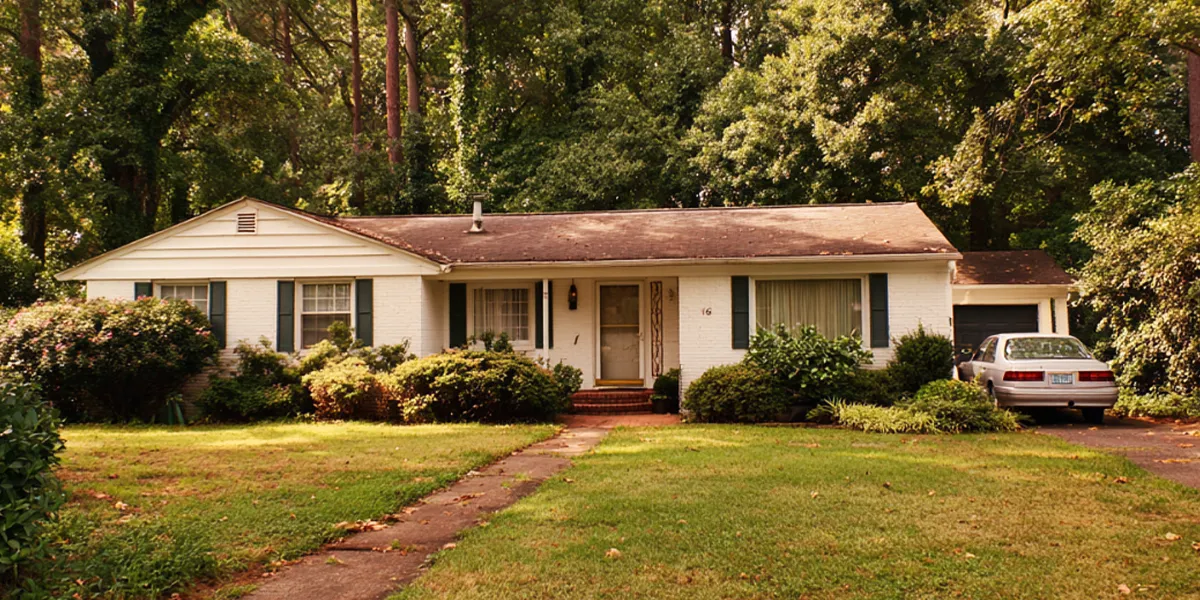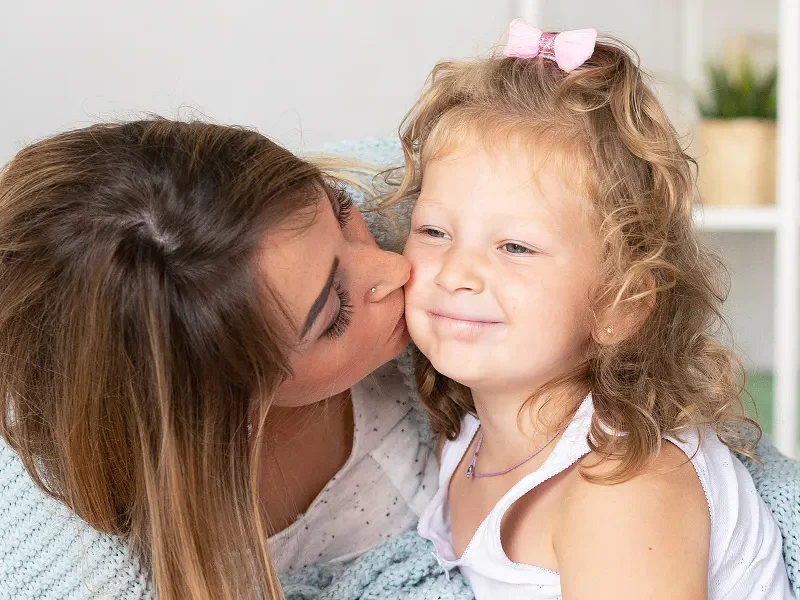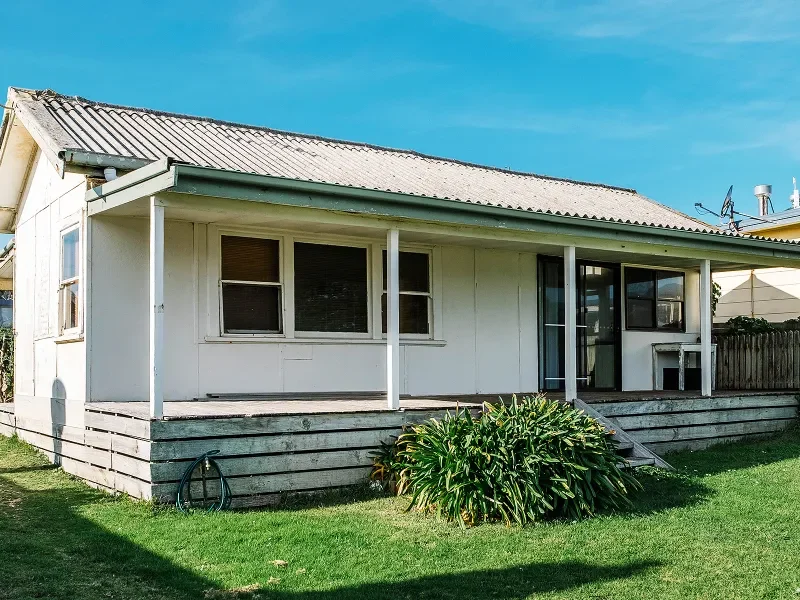We were still grieving our parents when the HOA knocked on our door and told us to leave the only home we had ever known. They called us a violation. But we weren’t going to let them erase our family that easily.
My name is Claire, and I’m 20 years old. My sister, Iris, is 18. We still live in the house we grew up in, the only place we’ve ever truly called home. And I don’t mean that as a figure of speech. I mean it in the most literal sense.
Our parents brought me here straight from the hospital after I was born, and Iris followed two years later. Every corner of this place holds a piece of our family’s story.
It’s not some picture-perfect magazine house. The walls have scratches. The paint in the upstairs hallway is chipped. There’s a faint pink stain on the carpet near the dining table where Iris once knocked over a bottle of cranberry juice during a holiday dinner.
But to us, this house is memory, comfort, and history all wrapped into one.
Dad bought it with Mom twenty-eight years ago, back when they were still figuring life out. He used to say it was the only thing he ever got right on the first try. Over the years, they turned this house into a home, and then into a world just for us.
There’s a dent in the hallway wall from when I rollerbladed indoors at 10 and crashed headfirst into the coat rack. The driveway still has faint chalk outlines from our never-ending hopscotch competitions.
Even now, if I stand outside on a warm afternoon, I swear I can smell the grilled corn and Dad’s famous barbecue ribs in the air.
Every summer, he’d fill the backyard with picnic tables, overloaded with potato salad, baked beans, burgers, and that weird zucchini dish only Mom liked. She’d laugh whenever we pulled faces trying to avoid it.
When it rained, we built real blanket forts, not the kind people just talk about, but the kind that took over the entire living room. Iris and I would drag every chair we could find into place, then throw sheets and blankets over them to make tunnels and secret hideouts.
Meanwhile, Mom would be in the kitchen baking banana bread, and the sweet smell would drift through the house, mixing with the sound of thunder outside. Sometimes we would all sit together on the front porch, counting the seconds between the flash of lightning and the rumble that followed.
Dad would say, “If we hit ten, we’re safe,” and when we did, he would grin and say, “Alright, storm’s done being dramatic.”
But the storms didn’t stop. They just changed.
Four years ago, we lost Dad. He had a heart attack in the middle of a work trip and never made it home. That was the first time the house felt quiet in a way that truly scared me. It felt as though something vital had been taken from it. The rooms still looked the same, but they no longer felt full. They felt empty, like they were holding their breath.
Then, five months ago, we lost Mom too. It was cancer. She had kept it from us for a while, not wanting to “ruin our joy,” as she put it. By the time we found out, it was already too late. She passed away within a few weeks.
After that, the silence doubled. And it wasn’t just the kind you hear. Grief isn’t only about what’s missing; it settles into the air differently. Everything feels heavier and stiller, like walking through fog that somehow found its way inside.
Iris barely spoke for the first few weeks. She’d sit in the living room with her knees pulled up to her chest, staring at nothing. I kept trying to keep things “normal,” like making her favorite pasta, playing her playlists in the background, and pretending the world hadn’t split wide open beneath our feet.
We clung to the house because it felt like all we had left of them. Their smell still lingered in the closet. Mom’s handwritten recipes sat by the fridge. Dad’s toolbox was exactly where he left it in the garage. We told ourselves we weren’t ready to let go yet.
It turned out that someone else was more than ready.
Her name is Marlene. She is 55, always wears crisp pastel cardigans, and has a sharp little bob haircut that never moves, not even in the wind. She is also the head of the HOA in our neighborhood, and she likes to call herself “the eyes and ears of the community.”
She first showed up a few weeks after the funeral. I remember her knock. It was precise and impatient, like she expected us to drop everything and treat her like royalty. When I opened the door, she was standing there with that fake little smile she wears like lipstick.
“You girls don’t belong here anymore,” she said, her voice clipped and sugary. “Rules are rules. A single family only. That means one parent with children. Not… two stray adults.”
The way she said it made me feel small, like we were animals she’d found rummaging through her trash cans. I tried to keep my face still, but Iris was behind me and muttered, “Seriously? Stray adults?”
Marlene didn’t even blink. “I’m just informing you of the policy. The HOA defines a ‘single family’ as a person or couple and their legal, unmarried children. When your mother was alive, this household qualified. Now that she’s passed, it technically doesn’t.”
I remember standing there, gripping the doorknob, willing myself not to slam it in her face. She wasn’t finished.
“Out of respect for your dear parents,” she continued, with the fakest sympathy I’ve ever heard, “we haven’t sued yet. But if you insist on squatting here, I’ll have no choice but to involve the lawyers. Imagine what that will cost you.”
Iris stepped forward. “We grew up here. Our names are on the will. This is our house.”
Marlene gave her that tight little smile. “I’m sure it feels that way, sweetheart. But legality doesn’t run on feelings.”
She left without another word, and I closed the door with my hands shaking. Iris stormed off to her room and slammed the door. I sat at the kitchen table for an hour, just staring at the empty fruit bowl.
But Marlene wasn’t done.
She came back, and then she came again. Each time she used that same sharp knock, and each time she wore that same plastic smile. It was as if she was daring us to break.
Then, two days ago, she came again, but this time she brought someone with her.
I opened the door and froze.
There was a man beside her, probably in his 60s, wearing a charcoal suit and carrying a folder under one arm. He didn’t smile. He didn’t say anything.
Marlene, on the other hand, looked positively giddy.
“Girls,” she said, her tone sickly sweet, “pack up your things now and get out!”
I didn’t speak. I couldn’t. My mouth went dry, and my stomach twisted.
Iris appeared behind me, still in her pajama pants, hair pulled into a messy bun. “Who the hell is this?” she asked, nodding toward the man.
Marlene’s smile widened. “This is Mr. Bradshaw, our HOA’s legal consultant. He’ll be helping us ensure a smooth transition of the property.”
I finally found my voice. “You can’t just show up and tell us to leave. We haven’t done anything wrong.”
“You’ve violated the HOA’s occupancy rules,” Marlene replied briskly. “We’ve been more than patient. It’s time for you to respect the process.”
Iris folded her arms across her chest. “We’re not going anywhere.”
Mr. Bradshaw finally spoke, his voice low and flat. “We’re giving you seventy-two hours to vacate the premises. After that, formal action will be taken.”
Marlene nodded. “It’s in everyone’s best interest if you cooperate.”
Iris took a step forward, fire in her eyes. “You’re standing on our porch, in the house we grew up in, and you’re threatening us?”
I could feel my own anger rising now, burning through the numbness. “We’re not squatters. This is our home.”
Marlene shrugged, as if we were being difficult children refusing to follow instructions. “Then I suggest you read the bylaws again. Carefully.”
She turned on her heel, heels clicking against the concrete, and the man followed silently behind her.
The door shut behind them with a dull, heavy sound.
I leaned my back against it, breathing hard, heart racing.
Iris stood next to me, jaw clenched, fists tight. “We’re not leaving,” she said quietly. “I don’t care what it takes. We are not leaving.”
And for the first time since Mom’s funeral, I believed her.
I blinked, confused, still holding the door open like I hadn’t just been slapped across the face with legal nonsense.
“Excuse me? On what grounds?” I asked, my voice sharper than I expected.
Marlene didn’t even blink. She just gave a little nod toward the man beside her, as if she was handing the stage over to someone with more authority.
The man stepped forward without hesitation. He opened his folder and pulled out a stack of papers, clipped together, and held them out to me. “Per Section 3, Article 7 of the HOA bylaws,” he said. “Single-family occupancy only.”
I took the stapled pages, but Iris snatched them from my hand before I could even flip past the first line.
“What the hell does that even mean?” she said, flipping through it quickly. Her brow furrowed deeper with every sentence she read.
I leaned over to look at the part where she had paused. The clause was long and overly detailed. Honestly, it read more like a bad attempt at a family tree than a legal document. It listed everyone who counted under “single family:” legal partners, children, stepchildren, parents, stepparents, grandparents, grandchildren, adopted kids, and even legal wards and foster children.
But not siblings.
Not once. Not even a footnote.
And at the very bottom, someone had used a highlighter in glaring yellow to mark one sentence: “Co-owners may not reside on the property unless they meet the definition of single family.”
I looked up, the words still swimming in my head. “So… because we’re sisters, we don’t count?”
“That’s correct,” the man replied, without a hint of emotion. He reached back into his folder and pulled out another sheet. “This is a formal Notice of Violation. You’re required to comply by the end of the week.”
He handed it to me like it was just another memo. No apology. No empathy. Just a procedure.
Iris stared at him like she wanted to punch something. “Are you serious? This is our home. You’re trying to kick us out over a technicality?”
Marlene crossed her arms, her smug little grin back in full force. “The time for warnings is over. One of you moves out, or both of you go. Those are the rules.”
They didn’t wait for us to answer. They just turned and walked away like the decision had already been made.
I stood there for a long moment, frozen, holding that letter in my hands. They were shaking again, but not from fear this time. The trembling came from anger, and from the overwhelming disbelief that this was actually happening.
I turned to Iris, who was still standing beside me, staring out at the driveway like she was trying to set it on fire with her mind.
“They can’t do this,” I said quietly. “This is our house. We’re not some random renters off the street.”
“They’re betting we’ll just roll over and let it happen,” Iris muttered. “Screw that.”
That night, we didn’t sleep. We sat at the kitchen table, surrounded by papers, laptops, and cups of bad gas station coffee. Iris was researching HOA bylaws while I typed out a letter we planned to deliver to every house in the neighborhood.
We made a plan. We weren’t going down quietly.
The next morning, we printed everything out — the violation notice, the bylaw section, and our handwritten appeal. We each took half the stack and started knocking on doors.
Every time someone answered, we said the same thing.
“Hi, sorry to bother you, but we live at 143 Pine Meadow. Our parents passed, and now the HOA is trying to evict us because we’re sisters, and apparently, that’s not ‘family’ enough.”
People were shocked. Some were confused. A few seemed skeptical at first, but when we handed over the documents and they saw the highlighted section for themselves, the tone always shifted.
“What happens if my kids inherit this place someday?” one man asked, cradling his toddler on his hip. “You’re telling me they wouldn’t be allowed to stay?”
“That’s exactly what they’re saying,” Iris replied.
Another woman shook her head as she read the letter. “I knew Marlene was power-tripping, but this? This is disgusting.”
Word spread fast. People started texting, calling, and showing up at our door just to say they were with us. A retired couple two streets over offered to collect signatures for us. A high school teacher down the block said her sister stayed with her for six months after a divorce and had also been “warned” by the HOA.
“We just didn’t know we could fight back,” she told me. “But seeing you girls stand up… It’s kind of inspiring.”
Within three days, we had over thirty signatures. A week later, we had nearly the whole block.
One night, a small group of neighbors even showed up at Marlene’s house. We didn’t organize it — they just went on their own, knocking politely at first, then more firmly. She didn’t answer.
But it was clear she felt the pressure. Suddenly, the neighborhood wasn’t so silent anymore.
Ten days after our little door-to-door campaign started, we got another letter in the mail. This one came in a sleek envelope with no threat on the front. I opened it cautiously.
It was from the HOA board. It said the prior notice had been “premature and misinterpreted,” and that they “regretted any confusion caused.” No mention of Marlene. No mention of Mr. Bradshaw. Just a quiet, carefully worded apology.
“We have reviewed the language of Article 7 and recognize the need for clarification moving forward. No further action will be taken. Thank you for your patience.”
I read the letter three times before looking at Iris.
One evening, our neighbor Mrs. Collins, who’s in her 70s and lives alone with her niece, stopped by. She brought over homemade peach cobbler and sat with us on the porch, her voice soft but steady.
“We’ve all been afraid of that woman for years,” she said. “You girls reminded us that we don’t have to be.”
Soon after, someone started a petition to dissolve the HOA altogether. A few others announced they’d be running for new board positions to replace the current leadership. There was even talk of rewriting the bylaws completely, to include a broader definition of family and to add checks on the board’s power.
Iris and I didn’t plan to lead any movement. We just didn’t want to lose the only home we had left. But somehow, in fighting for it, we gave people a reason to speak up.
A week later, we passed Marlene at the mailbox. She looked at us, then quickly looked away. Her posture wasn’t as straight as it used to be.
I smiled. “Beautiful day, isn’t it?”
She didn’t answer.
That evening, Iris walked out to the backyard carrying two plates in her hands with grilled cheese and tomato soup. We sat under the fairy lights Dad had strung up years ago, our feet propped on the bench, surrounded by the familiar smell of charcoal and damp grass.
“So,” Iris said, between bites, “you think Mom and Dad would be proud?”
I didn’t even have to think. “Yeah. I do.”
We sat in silence for a while, just listening to the crickets, the rustling trees, and the faint clatter of someone else’s dinner dishes in the distance. It turned out Marlene wasn’t the queen of the neighborhood after all. She had simply woken up the village.


